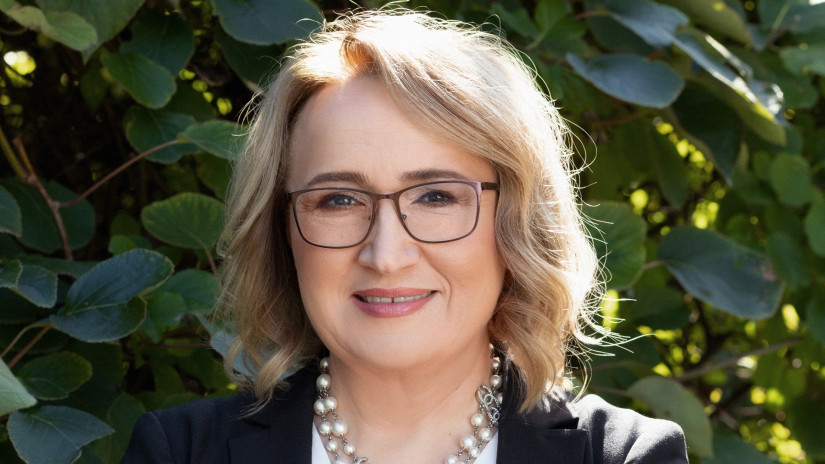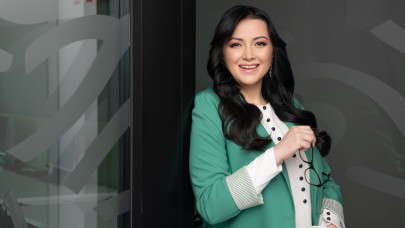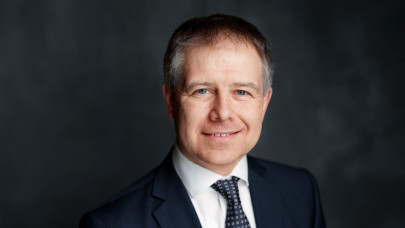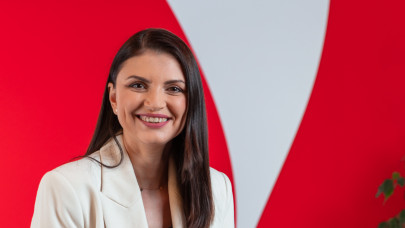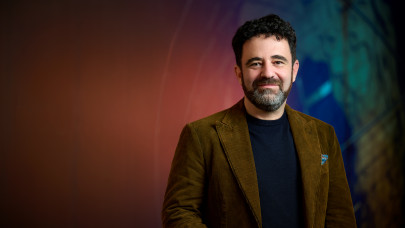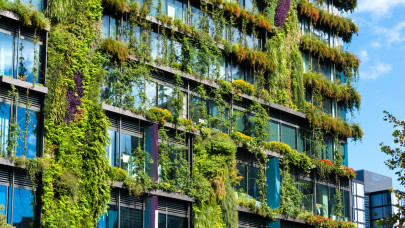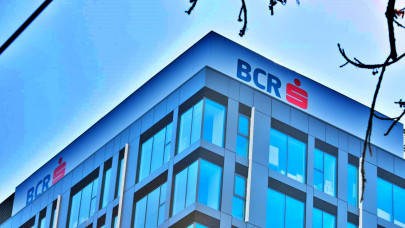What role does ESG currently play in the decision-making process at your bank?
With net-zero to be achieved by 2050, we, the Europeans, are facing a big economical transformation, possibly the biggest so far. This is something the top EU decision-makers definitely agree on, if we are only to consider the recent approaches in Davos 2023. How to bridge the gap between our present and a clean future, this question orchestrates an entire world of opportunities: for example, we can look at the triple growth in size of the market of clean energy technology by 2030, i.e. $650 billion a year, as estimated by the International Energy Agency.
Clean technologies in manufacturing, building, transportation and energy, all these are big opportunities for which we are getting ready to invest, as a leading financial institution of the region. On a more applied level, we are interested in supporting the transition from the high carbon energy sector towards renewable energy sourcing and the low carbon energy grid, the renovation of obsolete buildings, the modernization and expansion of the region's railway infrastructure, recycling and waste management improvements and further water collection and treatment upgrades, to name just a few of our tactical investment plans in sustainability.
As a bank, we want to be part of the answers to the big, difficult questions if we are to stay relevant in the future. Therefore, for us, ESG goes beyond compliance and reporting. ESG is the framework that helps our stakeholders understand how we manage opportunities and risks. This includes the financial services we offer to retail and corporate and cotinues with the manner in which we manage our own operations – from energy efficiency for our offices to employee mobility. Being a regulated entity, from governance perspective, we have embedded the ESG principles through our Sustainability Committe and the set up in 2022 of a dedicated Sustainability Department to further coordinate, develop and focus ESG actions and initiatives throughout the bank. It is a sustainability journey we are completely committed to.
Which sustainable projects and companies did you finance in 2022? What are your plans for this year?
In 2022, BCR has commited to green funding for projects in sustainable activities, i.e. Green Group /recycling/ participation in the first sustainable syndicated facility, Teraplast / financing of a biodegradable production capacity, renewable energy projects / issuance of comfort letters to co-finance PNRR projects, energy efficiency projects for our clients, while supporting clients with ESG education and loan structuring. Also it is worth mentionning that a considerable part of investment loans, granted under the IMM Invest Prod program, addressed PV panels CAPEX.
Apart from investing in sustainable projects, we have also invested in training our BCR colleagues to get upskilled in the ESG field. As the banking industry is shifting towards sustainable projects, the bankers should be ESG-literate in a profound way: not only understanding the tools, the regulations, the so-called ”mechanics” of ESG but also its approach. It is a shift in mentality, not only in the job description or procedures. Changing a job title into ”Green Financial Analyst” is not going to make banking greener or the world a better place. Changing the mindset into seeking sustainability opportunities every day, into reducing waste, into preserving energy - this is something that will make us, our bank and the entire banking sector, relevant to the ESG transformation.
Therefore we aim to continue our two-level approach towards sustainability: on one hand we are commited to investing in companies to be more ESG-sustainable, but we are also investing in our people to help them keep up with the ESG transformation of the economy.
How much did the bank invest in sustainability projects in previous years and what is the targeted amount for 2023?
BCR has several strategic plans which we have already started to implement from the perspective of reducing CO2 emissions: (1) the footprint strategy, aiming at the continuous reduction of heating and electricity consumption thanks to the optimization of the areas of use; and (2) the mobility strategy, including a gradual transition of our car fleet from thermal engines to electric vehicles. In 2021, we have reduced our CO2 footprint with almost 50%, through different measures implemented and we target neutrality of our operations by 2030.
In the past years, we have finalized moving operations from headquarters to buildings with a high degree of energy efficiency. For that we have achieved Platinum LEED certificates. As you know, LEED certification provides independent verification that a building or complex meets high criteria for sustainable development in terms of design, construction, operation and maintenance, bringing together direct benefits for people, the planet and the resources involved. This includes, among others: gree-cooling systems; heat recovery ventilation solutions; charging stations for electric cars; control of the main equipment through a building management system. Also, in 2022, we achieved a ratio of above 75% green electricity in total energy consumption.
For 2023, we are focusing on the consolidation project of our HQ buildings to one single location. This should result in further reduction of square meters and implicitly reduction of energy consumption. Also, we are prioritizing employee mobility, by the transition to using electric vehicles and use of public transportation.
In connection with financing the transition to a more sustainable economy, we are following our target to achieve, in 2026, a percentage of 25% of our corporate portfolio as green, in addition to the dedicated mortgage product for acquiring privately owned homes with the best energy labels on the market - Casa Mea Natura, which amounted, at the end of 2022, to 35% out of total volumes for secured housing loans.
In 2021, BCR launched the first green bond issue in Romania with a total value of RON 500 million and others followed later. Do you plan further green bond issues in 2023?
In June 2022, BCR listed a new green bond issue of RON 702 million , with a maturity of 5 years and annual fix rate of 9.079%. Moving forward, BCR considers that green bonds issuances are part of our vision for the sustainable and long-term transformation of the Romanian economy and of course, any formal announcement would follow the applicable capital market provisions.
How do you think the banking sector is doing in achieving the established targets regarding sustainability in Romania? How is the sector in Romania doing compared to other countries?
First of all, I would note that 2022 was a challenging year at a macro, societal level. The humanitarian tragedy at our borders have impacted prosperity, social outcomes and access to affordable energy, coming also after a severe socio-sanitary crisis. However, some progress has been made, despite the context. In the Sustainable Development Report 2022, by Sachs and team, Romania is on the 30th place (out of a total of 163) with a score of 77,7. This marks an improvement from the previous year when Romania was on the 39th place and I hope this trend will accelerate more consistenly.
How supportive is the regulatory environment in Romania for companies wanting to invest in sustainability? How would you describe the collaboration with the authorities?
From our perspective, one of the key component of the necessary framework to support the sustainability and attract additional investment for companie is transparency, monitoring and reporting. In this respect, it is work in progress, with some relevant steps already taken. On this note, I find very it relevant to mention the actions performed by the Department for Sustainable Development. We expect that the “the Romanian Sustainability Code“ to be on one hand, a guide for companies on ESG requirements, and on the other hand to provide a much needed tool to define and apply ESG reporting criteria, to encourage more transparency and therefore to increase the chances to access green finance. We also acknowledge the active role that the National Bank of Romania took in providing active guidance and market information on the topics of sustainability.
Last but not least, we note that in addition to considering the funding opportunities that are currently either available or in the process of being deployed under various programmes and plans - the National Recovery and Resilience Plan (with a 37% budgeted to sustainability), the Modernisation Fund, the Just Transition Fund and other operational programmes- the Romanian economy and Romanian companies still require relevant investments, which we, BCR, as a leading credit institution, as part of the Romanian banking system, are dedicated to support.
All in all, I am optimistic. I believe that the future is going to bring some big transformations, indeed. But I trust these transformations will come with equally big opportunities for the community. Therefore, I see great times ahead for the brave, for the active learners and for the community catalysts.

